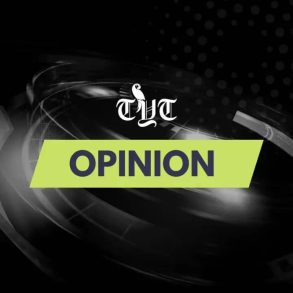Government revenue got a boost as taxes from companies and consumers rose by 96.11 per cent to N2.31tn in the second quarter of 2023, signifying a huge jump between the first quarter and second quarter of the year.
In Q1, 2023, the total tax paid by companies and consumers was N1.18tn, according to the National Bureau of Statistics.
The significant rise in taxes generated in Q2 was because of Company Income Tax which rose by 226.40 per cent quarter-on-quarter to N1.53tn from N469.01bn in Q1, 2023.
Companies in Nigeria paid about N1.53tn as taxes to the government in the second quarter of 2023, according to the latest Company Income Tax report by the National Bureau of Statistics.
According to the Federal Inland Revenue Service, CIT is a 30 per cent tax imposed on the profits of companies.
Checks showed that this is the first time companies have paid over N1tn in a single quarter.
Available data from the NBS showed that the amount collected in Q2 2023 was higher than the total amount collected each year in 2015 (N1.38tn), 2016 (N1.02tn), 2017 (N1.25tn), and 2018 (N1.41tn).
The previous highest amount collected was N810.19bn in Q3 2023, while the lowest was N155.96bn in Q1 2017.
VAT, a 7.5 per cent consumption tax borne by the final consumer of a product, only increased by 10.11 per cent q-o-q in Q2 to N781.35bn from N709.59bn in Q1.
Commenting on the taxes, the NBS said, “On the aggregate, CIT for Q2 2023 was reported at N1.53tn, indicating a growth rate of 226.40 per cent on a quarter-on-quarter basis from N469.01bn in Q1 2023. Local payments received were N1.02tn, while Foreign CIT Payment contributed N505.91bn in Q2 2023.”
For VAT, it stated: “On the aggregate, VAT for Q2 2023 was reported at N781.35bn, showing a growth rate of 10.11 per cent on a quarter-on-quarter basis from N709.59bn in Q1 2023. Local payments recorded were N512.03bn, Foreign VAT Payments were N142.63bn, while import VAT contributed N126.69bn in Q2 2023.”
Water supply, sewerage, waste management, and remediation activities (626.52 per cent), accommodation and food service activities (585.11 per cent) recorded the most CIT growth.
The manufacturing sector (25.63 per cent); financial and insurance sector (24.47 per cent); and information and communication (20.30 per cent), were the three largest contributors to CIT.
The activities of extraterritorial organisations and bodies (212.06 per cent), and real estate activities (123.09 per cent) recorded the most VAT growth.
Manufacturing (29.64 per cent); information and communication (21.19 per cent); and financial and insurance activities (11.18 per cent) were the three largest contributors to VAT.
An economic expert from the University of Uyo, Professor Akpan Ekpo, recently told said that the increase in VAT revenues was due to increase in VAT rate and the growth of CIT was because of the FIRS efforts.
He said, “Increase in VAT is down to the recently increased VAT rate. This is a 2.5 per cent increase to 7.5 per cent will translate to a constant increase in VAT collected compared to when it was five per cent”
Per the International Monetary Fund, Nigeria has one of the lowest revenue-to-GDP ratios in the world, making it vulnerable to fiscal shocks.
It has since asked the Federal Government to increase VAT rates to 15 per cent.
In a bid to further increase its tax revenues, the Federal Government recently announced plans to review and reduce tax waivers given to companies operating in Nigeria.
According to the Chairman of the Presidential Tax Reform Committee, Mr Taiwo Oyedele, Nigeria’s total tax incentive to companies was about N6tn annually.
He said: “When you don’t look at your incentive regime, it can get to a point when it becomes a distortion for economic growth because some people benefit and others don’t, but they operate in the same sector; so, they cannot compete. You also have to think about it from the point of view of cost benefits.
“As a country, if we are giving away N1, we need to be able to convince ourselves that the benefit we are getting is more than N1. Otherwise, that is no longer an incentive for the economy but for some individuals.”
He further noted that the country had a N20tn tax gap, that when closed with automated processes, could boost government revenue.






